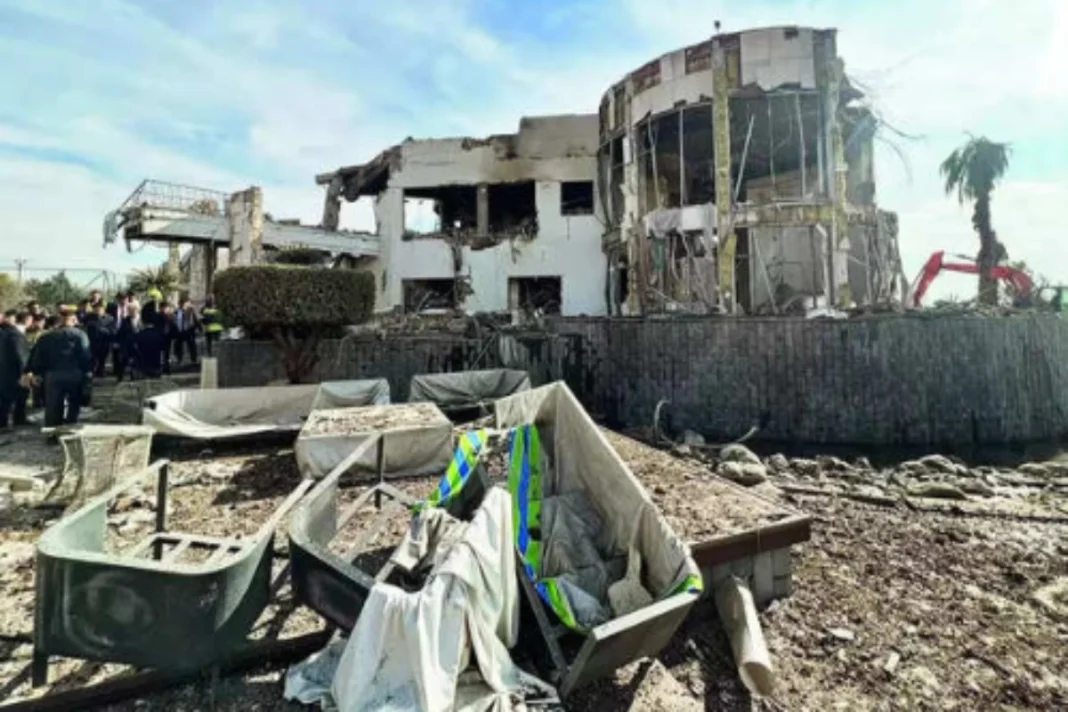Iran Pakistan Air Strike: Pakistan on Thursday carried out airstrikes on Bases targets within Iranian territory, killing several terrorists in retaliation for Iran‘s lethal missile and drone strike in Balochistan. The attacks took place one day after Iran acknowledged attacking the province of Balochistan, which led Islamabad to declare its right to retaliate against what it described as a “illegal act.”
Pakistan’s Immediate Action Following Iranian Provocation
“This morning Pakistan undertook a series of highly coordinated and specifically targeted precision military strikes against terrorist hideouts in Siestan-o-Baluchistan province of Iran. A number of terrorists were killed during the intelligence-based operation – codenamed ‘Marg Bar Sarmachar’,” an official statement read.
Unrest Hits Southeast Iran
A string of explosions shook the city of Saravan in southeast Iran on Thursday, according to the deputy governor general of the unrest-plagued Sistan and Baluchestan province of Iran, which borders Pakistan. Speaking to the state-run news agency IRNA, the official acknowledged the explosions and said that an inquiry was in progress to ascertain their cause.
Pakistan denounced Iran on Wednesday for launching a missile and drone attack on its territory that left two children dead and three injured in Balochistan. The Pakistani government declared that the strike violated international law and the UN Charter’s tenets and called it a “unprovoked violation” of its sovereignty and airspace.
Foreign Minister Affirms Strikes Targeting Jaish al-Adl
The foreign minister of Tehran confirmed the Tuesday action, stating that the strikes were directed towards Jaish al-Adl, a group that Iran regards as a terrorist outfit. Founded in 2012, Jaish ul-Adl, sometimes known as the “Army of Justice,” is a Sunni extremist organisation that primarily functions in Pakistan across the border.
DON'T MISS
In reaction, Islamabad launched a series of aggressive diplomatic manoeuvres, including the recall of its ambassador to Iran and the denial of the Iranian envoy’s request to visit Pakistan again. Iran has been conducting military operations in the region at the time of the incident in Balochistan; earlier strikes had targeted areas in Syria and Iraq. Pakistan had issued a warning after the airstrike threatening “serious consequences”.
International Conventions Transgressed
Mumtaz Baloch, a spokesman for Pakistan’s Foreign Ministry, voiced severe worry over the transgression of international conventions and asserted that the incident occurred despite the two countries having many established channels of communication.
This event occurs at a time when both countries are being accused of providing sanctuary to terrorist organisations that carry out cross-border assaults. The common border, which is roughly 900 kilometres long, has long raised security issues for Tehran and Islamabad.
Sabz Koh Strike Intensifies Iran-Pakistan Relations
These tensions have now become more prominent in the bilateral relations between Iran and Pakistan as a result of the recent strike near the village of Sabz Koh, which is close to the Iranian border. Following the tragic strike, China on Wednesday urged both countries to use caution in managing their protracted conflict. “Avoid actions that would lead to an escalation of tension and work together to maintain peace and stability in the region,” the Chinese Foreign Ministry pleaded.
Keep watching our YouTube Channel ‘DNP INDIA’. Also, please subscribe and follow us on FACEBOOK, INSTAGRAM, and TWITTER



